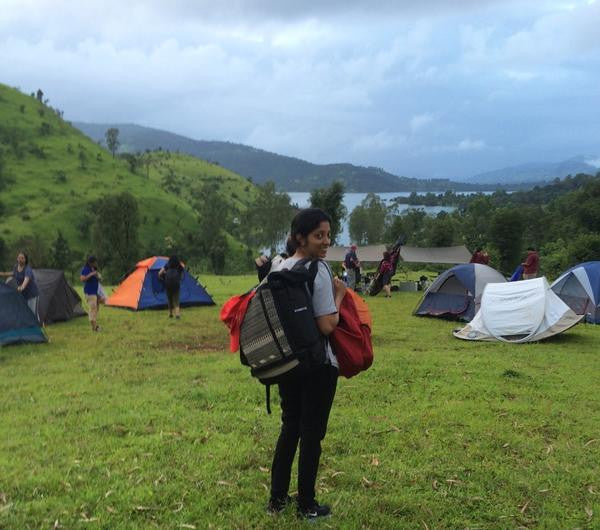Diwali has come to a close, and the Ethnotek crew is full of good vibes. Diwali feels good. It celebrates all of the things we hold most dearly as a community, namely connection and celebration of culture. Sure, we can learn a lot about the historical significance of this holiday and its cultural traditions from the numerous sources, but in order to truly understand how the cultural traditions play out in modern India we thought it'd be fun to talk to one of our favorite Tribe members to see how her family celebrates in Mumbai. Check out the below, and enjoy!
From Arushi:
If you follow Ethnotek on Instagram you would’ve already read a fair bit about Diwali and why it’s celebrated. (If you haven’t, follow @ethnotekbags right away!)
Diwali is called the festival of lights and celebrates the triumph of good over evil.
According to Hindu mythology, Rama, the prince of Ayodhya, was banished from the kingdom by his father. His devoted wife Sita and faithful brother Lakshmana accompanied him to the forests where they lived for 14 years. While in exile, the demon king of Lanka – Ravana – abducted Sita. Rama fought and killed him, rescued Sita, and returned to Ayodhya. The story goes, that the people of Ayodhya were so happy to hear of their beloved prince’s return, that they celebrated it by lighting up their homes with lamps and decorated the entire city. This is believed to have started the tradition of Diwali.
But this was a very long time ago! What does Diwali mean today? How is it actually celebrated? What significance does it have? For me, Diwali has always been a time for family. Wherever in the country or world, we all try our best to be home for the festival.
In my home we have a couple of traditions that have been following for as long as I can remember. I may not always understand completely why we do what we do, but through them I feel a sense of connection and rootedness. We light 11 earthen diyas on Choti Diwali (literally meaning Small Diwali – the day before main Diwali day) and 21 earthen diyas on main Diwali. Soaking the earthen diyas in water, drying them, filling them with oil, making the wick for each, lighting them, and then distributing them in every room of the house along with my sister has somewhat become my own tradition of sorts.

Ever since we were little, my mother would enlist our help in creating the ‘Rangoli’ outside our home door. Just the other day, as I sat outside the door, creating a new rangoli, I realized how calming the process was. The white powder slowly being released from in between my pinched fingers to form whatever I was visualizing almost put me into a tranquil daze!

It is said that those that give and receive freely on Diwali, will receive in abundance through the rest of the year. On Diwali night, my entire family sits down to play a couple of rounds of ‘taash’ (cards). We wager measly sums of 10 paise per point, and by the end of the games someone is richer by a few Rupees while others not so much.

These are just some of the traditions and memories that make Diwali special for me. In general though, the camaraderie that is experienced and the joy that is seen on people’s faces during these 5 days (and even the days leading up to Diwali) is truly a reflection of their inner light. Sharing, giving freely, and a spirit of community are so visible and I find myself wondering why we can’t hold onto this spirit and joy all through the year.
It is also said that because the night is darkest on Diwali (Amavasya – no moon) that the Lights shine brightest!
Love, Light, Prosperity and Abundance to all of you awesome people!
Arushi
A little bit about the guest Tribe writer, Arushi:

Arushi is an Indian product designer who likes to define herself as a "people-centered designer and maker" and has recently started a socially responsible brand dedicated to empowering women through design called The Initiative (follow on Instagram @_theinitiative).
She never ceases to be amazed by the wonders India beholds. She's not exaggerating when she describes India in saying that the people, language/dialect, food and crafts change literally every 100-200 kilometers. Arushi is currently working with a group of women in omen in rural Maharashtra to empower them to be more economically independent through making what they know best - 'godhdis' - traditional quilts made from old sarees. In Arushi's words: "It's an amazing and challenging experience, as I fill several roles - sales and marketing person, funds manager, designer, counsellor, delivery woman and friend!" She loves handmade things and is intrigued about the story behind each item...in fact, her happy place is full of every conceivable craft supply on earth.

